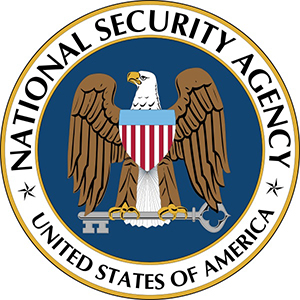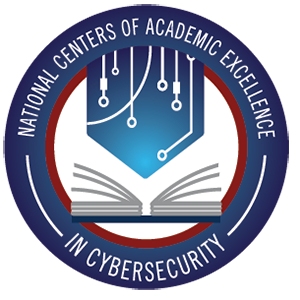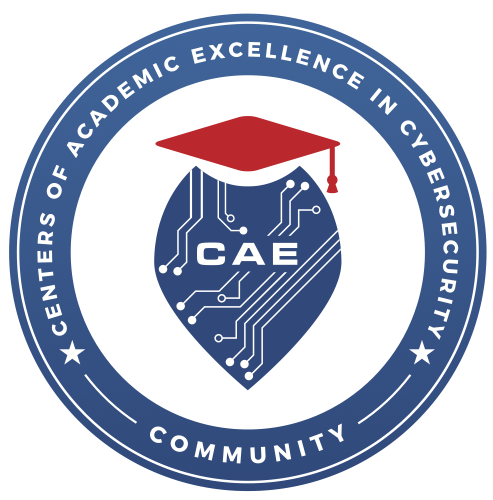Welcome to the LSU Cyber Center—Protection through Prowess
LSU designated as a National Center of Academic Excellence in Cyber Operations (CAE-CO) by the National Security Agency (NSA)
Cybersecurity education and research at LSU prepares students for some of the most challenging and fast-growing careers of vital importance to the security of Louisiana and the nation. The U.S. Bureau of Labor Statistics predicts cybersecurity jobs will grow 31% through 2029, over seven times faster than the national average job growth rate.
The goals of cybersecurity are to protect computer systems, networks, and associated infrastructure and to ensure the confidentiality, integrity, and availability of both stored and transmitted data. Importantly, cybersecurity has both defensive and offensive components. Defensive cybersecurity is concerned with configuring and actively defending systems to harden them against cyberattacks. Offensive cybersecurity involves probing the defenses of systems to reveal and potentially exploit vulnerabilities. At LSU, education and research in cybersecurity focus on both defensive and offensive capabilities.
LSU students work with professors and industrial collaborators with decades of experience to learn about analysis of malicious software, reverse engineering, development of software exploits, memory forensics, and more. Our goal is to provide students with a strong background in applied, hands-on cybersecurity to prepare them for jobs in intelligence agencies, the federal government, the private sector, and academia.
Latest News
Bou-Harb and his team are creating an open-source platform that enables users to program their own devices (P4 Programmable Data Processors) and smart network interface cards (SmartNICs), leveraging new machine learning methods to recognize malicious behaviors.
Louisiana small businesses are lining up to receive free services through the LSU Cybersecurity Clinic, the first such clinic in the nation to be funded by the National Security Agency, or NSA.
LSU psychology major Michael Cole Fontenot from Ville Platte, Louisiana, is helping to protect the lives of American soldiers as part of a $600,000 cybersecurity research project for DARPA.
465,000
unfilled cybersecurity jobs in the U.S. today
- Cyber Seek
0%
unemployment rate among cybersecurity graduates
- Cybersecurity Ventures

Scholarships
For qualified students who are U.S. citizens, LSU offers scholarships under the National Science Foundation's Scholarship for Service (SFS) program, which provides students with a stipend, free tuition, and professional development funds for up to three years of study, in exchange for a commitment to accept a job in the federal government. Recent cybersecurity Ph.D. graduate Ryan Maggio (left) joined the LSU SFS program and is now working as a cyber systems exploitation researcher at MIT’s Lincoln Laboratory, a Department of Defense-funded R&D center.
Although I’m an undergraduate, I’ve been able to get extensively involved in research through the LSU Applied Cybersecurity Lab. I'm conducting research on the security of QR-code-scanning software to determine if high-risk injection attacks are possible by people accidentally scanning malicious QR codes.
Karley Waguespack, Junior in Computer Science
Internships
LSU works with industry and government to place students in competitive internships, including through the National Security Agency (NSA) Centers of Academic Excellence in Cyber Operations, or CAE-CO, program. LSU cybersecurity graduate student Joshua Duke spent 12 weeks as a paid intern working with NSA employees on a classified cybersecurity project.
$332,100
The Department of Homeland Security announced in November 2021 that it plans to hire cybersecurity professionals at salaries of up to $255,800 or even $332,100 to compete with the more lucrative private sector.
- The Record
Meet Sarah Buckley
LSU computer science senior Sarah Buckley from Mandeville, Louisiana is training to be a cyber warrior. She received a security clearance from the National Security Agency (NSA) three years ago to help defend the United States against cyber attacks. But life took an unexpected turn—her mom died of pancreatic cancer, and then Buckley got COVID-19, which led to vascular dementia, or brain fog. Now she’s back and working on how to best protect Louisiana businesses and critical infrastructure in the LSU Applied Cybersecurity Lab—a world leader in memory forensics and malware research.
State-of-the-Art Facilities
Come On In
Visit us in the brand-new Applied Cybersecurity Lab in the Center for Computation & Technology or tour our facilities at Patrick F. Taylor Hall, the largest academic building in Louisiana and one of the largest academic buildings in North America dedicated to engineering education and research.






